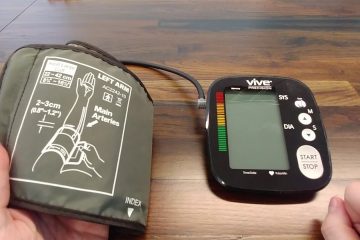What Coronavirus Tests Do I Still Need to Travel Abroad?

The COVID-19 pandemic is a social and economic casualty as a health problem with worldwide consequences. The ramifications of the pandemic have been severe and far-reaching. It has had a broad range of social and economic consequences, from school closings to damaged companies and the loss of many jobs. As a result, COVID-19 has the potential to aggravate global imbalances and hamper progress on issues such as global poverty and renewable energy, among others.
Individuals have begun creating coping techniques due to the pandemic’s most remarkable effect on the activities we used to do daily. To stay competitive in this kind of setting, we have begun to adjust to changing conditions and have revised our standards. As a result of the years lost to the pandemic, several nations have decided to ease their prohibitions. They progressively enable people to leave their homes for various reasons, such as educational, occupational, medical, and recreational pursuits. Despite this, the government says that public safety will remain a top priority to limit the virus’s spread throughout the country. The most effective technique is to prevent infection by receiving an essential and accessible diagnosis, treatment, and vaccines.
Antigen testing is often used to detect respiratory infections and respiratory syncytial viruses. In an emergency, the FDA has permitted antigen testing to identify SARS-CoV-2. These tests look for an antigen from a particular virus, indicating that the patient is infected at testing. There are now no limits on the use of antigen tests done on nose swab specimens immediately put in the extraction buffer or assay reagent; however, this may change in the future. Antigen testing at the point of care, in the laboratory, and at home is now legal and may be utilized by people of all ages.
Because of its low cost and ease of use, antigen testing may be utilized at the point of care. The majority of presently allowed tests take 15 to 30 minutes to complete. SARS-CoV-2 antigen tests, rather than real-time reverse transcription-polymerase chain reaction or other nucleic acid amplification methods, are more sensitive to recognizing viral nucleic acid. Even if the virus cannot be cultivated, NAATs may detect minute amounts of viral nucleic acid and stay positive for weeks or months after infection, proving that viral nucleic acid does not necessarily imply contagiousness.
Furthermore, antigen tests are often given to symptomatic patients since they are most effective when given to persons already experiencing symptoms within a particular number of days after their beginning. If a person has once been infected and exposed to the virus, antigen testing may help identify them as having COVID-19. Data on antigen testing performance in various settings have been collected throughout time to assist these screening tests in asymptomatic persons to detect or exclude SARS-CoV-2 infection.
<a href=’https://www.harleymedic.co.uk/coronavirus-travel-tests/’><img class=”aligncenter” src=’https://www.harleymedic.co.uk/wp-content/uploads/2022/02/What-Coronavirus-Tests-Do-I-Still-Need-to-Travel-Abroad-01.png’ alt=’What-Coronavirus-Tests-Do-I-Still-Need-to-Travel-Abroad-PCR-Rapid-Antigen-Infographic’ 540px border=’0′ /></a>
You must receive a COVID-19 viral test before going to another country from country, regardless of immunization status; this is especially critical while travelling. Also, you must notify the airline of your negative test result before boarding your aircraft. If you can show that you have been completely immunized against COVID-19, the rapid antigen test for travel may be performed on a sample obtained no more than three days before leaving the foreign country. If you do not have evidence of complete COVID-19 immunization, the rapid antigen test must be done on a sample obtained no more than one day before departure from the foreign country. Moreover, many airlines and countries, including the United States, ask for a Fit-to-Fly certificate or a Fit-to-Fly COVID test and Fit-to-Travel health documents to safeguard passengers.
Below is an infographic from Harley Medic International discussing what coronavirus tests still need to travel abroad.










